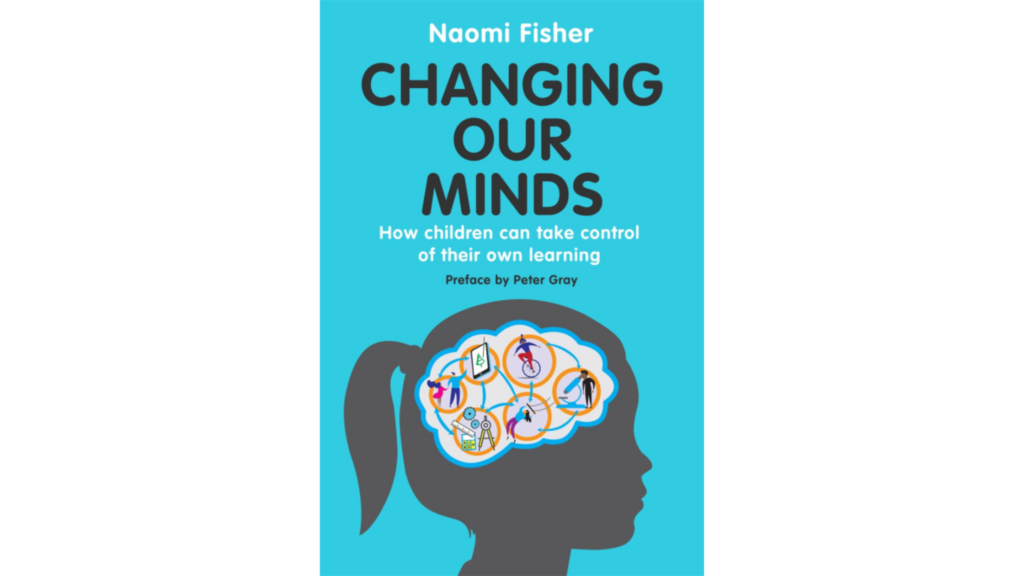Let’s change our minds about lockdown learning, and give kids a break, by Naomi Fisher

Naomi Fisher is a clinical psychologist and author. Her book ‘Changing Our Minds; How Children Can Take Control of Their Own Learning’ is out now, published by Little, Brown.
This time a year ago, we’d never have guessed how many people would have spent this year homeschooling. School seemed as much part of life as morning takeaway coffee and the daily commute… ah, well, turns out those weren’t so inevitable either.
But here we are in lockdown 3.0, and we’re all tired. Tired, bored and frustrated. And still pushing children through reams of worksheets or making them attend zoom lessons. Still doing ‘school at home’ in fact.
Which is a shame, because school at home isn’t the only way to learn. As home educators have known for decades, learning at home is different to learning at school. When a child is at home, they have more power and more choices – and so their education needs to reflect that. Otherwise parents and children spend their lives in battles over fractions and no one is happy.
So this lockdown could be an opportunity for children to experience a different way of learning – just for a few months or weeks. It could be a chance to learn things they were interested in, rather than to follow the curriculum. Would it really be so harmful if, just for once, children got to choose? There isn’t much they can decide in their lives right now, after all. We know from research that when children have more choices, their motivation and interest levels rise. It has to be better than yet another fight over schoolwork.
In my fantasy world, we would declare lockdown 3 to be a break from curriculum. We could decide to give all children a chance to follow their interests and remember what it feels like to learn something just because you want to. For one advantage that we have over earlier generations is that even though we are stuck inside and libraries are closed, almost all of us have access to enormous amounts of information. This means that learning is endlessly possible, even without leaving the house.
Imagine all the things children might learn. One might learn about coelacanths and their intriguing history. Others might learn how to how to write Pokemon names in Japanese. Others might go off on investigative trails and learn about the history of slavery, or find out why February has 28 days. Another one might beat the Enderdragon in Minecraft, or set up a Zombie farm and invite their friends. The only limit is their curiosity – and that’s something which grows, the more time you give it.
The thing which stops parents from doing this is fear. They’re worried about their children ‘falling behind’ and they think that ploughing through the school work is the way to prevent that from happening. After all, they themselves went to school, and that’s what they learnt there. But when you stop to think, is it really more important to complete worksheets than to be interested in what you are learning? And might all those worksheets actually be destroying our children’s enjoyment of their education?
That’s where my book comes in. Called ‘Changing Our Minds; How Children Can Take Control of their Own Learning’, it’s an examination of the theory, research and practice of self-directed education. It’s a handbook for parents, designed to help them challenge their own thinking and in doing so, let their children learn in an entirely different way. Because my experience shows me that many children know what needs to change. They know what they find interesting, and how many different ways there are to learn. It’s the adults around them who need to face their fears, and give their children the space to learn.
Find out more about Naomi Fisher
Read our interview with Naomi Fisher in our Voices section where you can find more articles that she has written.

